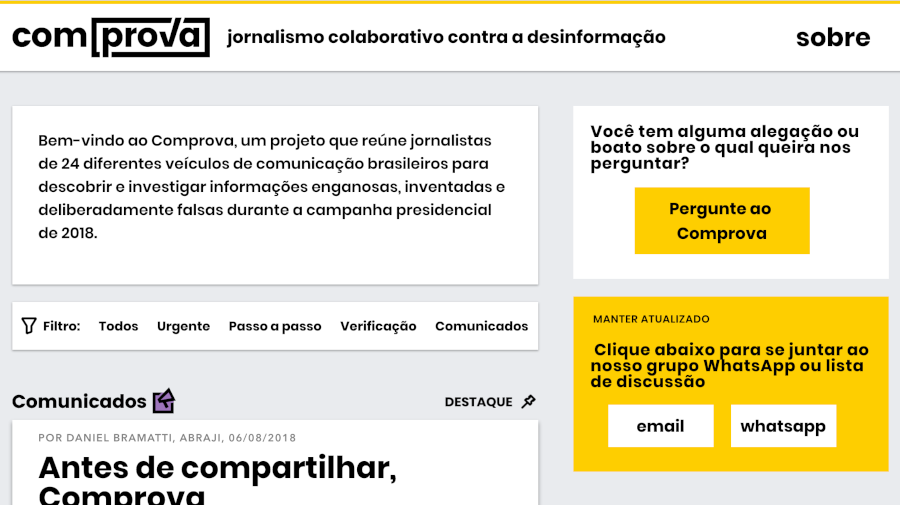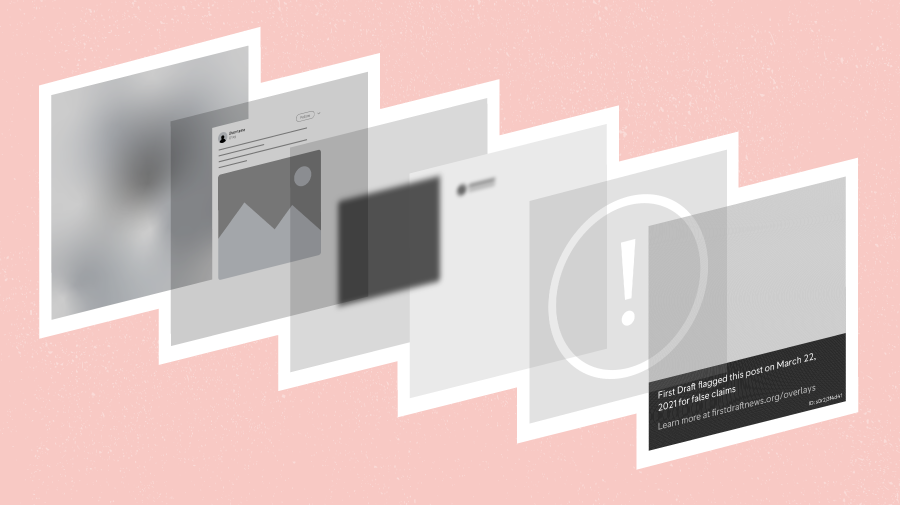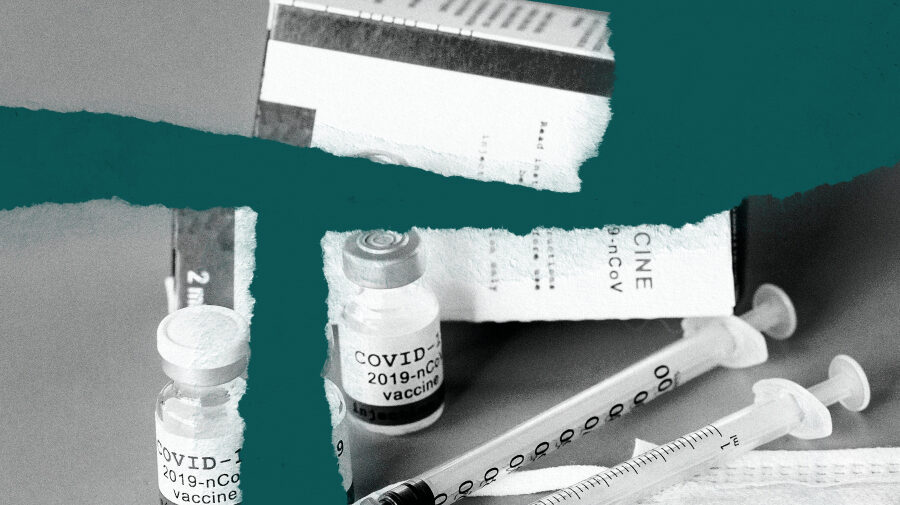São Paulo, August 6 – First Draft, a project of Harvard Kennedy School’s Shorenstein Center is thrilled to announce the first day of publishing for Comprova, a new collaborative journalism project that brings together 24 newsrooms in Brazil to verify misinformation online. Project partners will work together to authenticate information related to elections in Brazil, which take place on October 7 and 28 this year.
Over the past six months, First Draft has been working closely with Abraji, the Brazilian Association of Investigative Journalists, to provide training and project design support. Abraji is leading Comprova in Brazil, and the impact of the collaboration will be studied by a team of researchers at the John F. Kennedy School of Government at Harvard University.
Comprova will be the first journalism consortium to use the WhatsApp Business API, which will help reporters at newsrooms across the country review and respond to incoming messages at scale. The WhatsApp number is +55 (11) 97795-0022, and the public will be prompted to submit tips about confusing or false content related to the election.
The WhatsApp component is new for election projects facilitated by First Draft, which previously designed CrossCheck, its award-winning collaboration focused on the 2017 French election. The WhatsApp number will accept questions and tips from the public, and will facilitate the detection of trends in misinformation reported around the country. Researchers at the Harvard Kennedy School will be investigating how misinformation circulates on WhatsApp in the lead up to the election, and will be testing effective debunks on the platform. The findings will help inform newsroom best practices for requesting tips about misinformation as well as disseminating debunks to the public via WhatsApp.
“With about 120 million Brazilians using WhatsApp, it is the primary communication platform for most people, and as a result all kinds of information flows across the platform, including misinformation,” said Claire Wardle, who leads First Draft at the Harvard Kennedy School’s Shorenstein Center. “Comprova gives us a real opportunity to understand the role WhatsApp plays in Brazil, particularly how voters use it as a source of information during an election campaign.”
Comprova means “proof,” or when written as “com” and “prova,” it means “with proof” in Brazilian Portuguese. The project’s aim is to identify and defend against sophisticated manipulation and amplification techniques online. The workflow has been designed deliberately to encourage collaborative investigation among newsrooms that will continue beyond the election. The project website is optimized for a mobile audience, and report templates have been designed so they can be easily shared and consumed on social platforms, including WhatsApp. While it might not be possible to answer all questions posed on WhatsApp, Comprova journalists will strive to address content that has the potential to misinform a large proportion of the electorate.
The website – the engine that powers the collaborative element of Comprova – has a proprietary content management system designed specifically for this project, and will be used in future election projects around the world. Comprova is distinct in that no report can be published until three separate newsrooms agree with the verification work behind it, a process known as a ‘CrossCheck’.
The public can see the reports on a central Comprova website that has been designed to make it easy for people to share the content produced by participating newsrooms on Facebook, Twitter, and WhatsApp. Individual partners will also produce longer reports on their own sites. All information is published on the website under a Creative Commons License to encourage other publications to use the information – in whole or in part – with credit to Comprova.
Comprova Information:
WhatsApp: +55 (11) 97795-0022
projetocomprova.com.br
facebook.com/ComprovaBR
twitter.com/comprova
youtube.com/comprova
Newsrooms involved in Comprova include: AFP, Band News, Band TV, Canal Futura, Correio do Povo, Exame, Folha de S.Paulo, GaúchaZH, Gazeta Online, Gazeta do Povo, Jornal do Commercio, Metro Brasil, Nexo Jornal, Nova Escola, NSC Comunicação, O Estado de S.Paulo, O Povo, Poder360, Rádio Band News FM, Rádio Bandeirantes, Revista Piauí, SBT, UOL and Veja.
Comprova is being coordinated by Abraji, a Brazilian investigative journalist association, and has the support of Projor, which reports on the media and works to strengthen journalism in Brazil. The Google News Initiative and Facebook’s Journalism Project have helped to finance the project, and both companies are providing technical support and training for the teams involved.
Institutional Partners include Abraji, ANJ (National Association of Newspapers in Brazil), the Brazil office of Harvard University’s David Rockefeller Center for Latin American Studies, Projor and RBMDF Advogados. Technology Partners include CrowdTangle, NewsWhip, Torabit, Twitter and WhatsApp.
One thought on “Journalism Project Comprova Begins to Publish in Brazil”
Comments are closed.







What’s up, its good piece of writing concerning media
print, we all understand media is a great source of information.